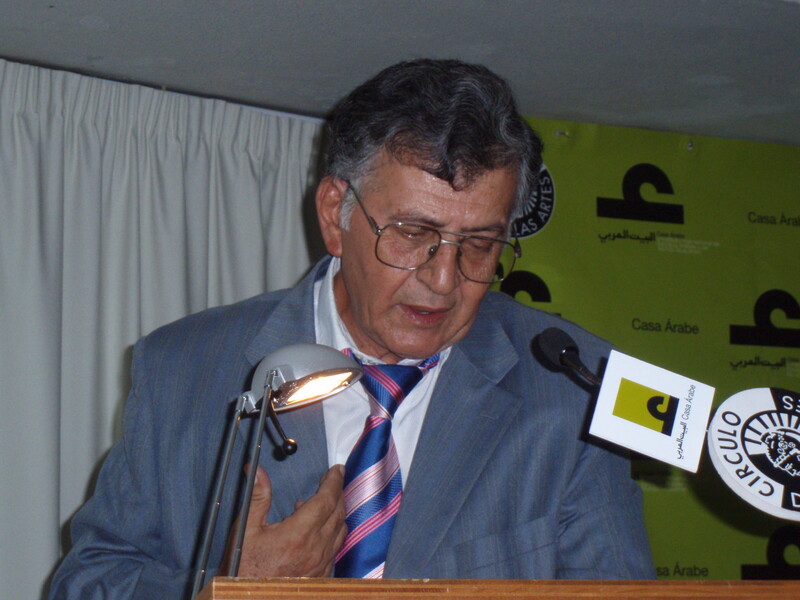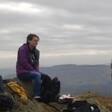Arts and Culture 20 August 2014

Samih al-Qasim, a poet who endured decades of Israeli repression, pictured during a visit to Spain. (Wikimedia Commons)
The great Palestinian poet Samih al-Qasim has died of cancer aged 75, in a major loss to Arabic and world literature.
Born to a Druze family from the Galilee in 1939, al-Qasim remained in Palestine after Israel was founded in 1948. He grew up under the military rule which was enforced on Palestinian communities within Israel until the late 1960s. He went to school in Nazareth, and was part of the flowering of Palestinian “resistance literature” which also gave the world the likes of Mahmoud Darwish, Tawfiq Zayyad and later Taha Muhammad Ali.
Al-Qasim was a powerful voice against Israeli oppression, both in the occupied West Bank and Gaza and also against Palestinians living within the State of Israel. He was one of the first members of the Druze community to refuse to serve in the Israeli army (and was followed in this by his son), and during his life was subjected to periods of house arrest, imprisonment, harassment by the Shin Bet secret police and censorship.
Principally, though, al-Qasim was active as a writer, ensuring that the voice of Palestinians within Israel continued to be heard. He wrote for major publications such as al-Jadid and al-Ittihad, and managed the Arabesque publishing house in Haifa.
Al-Qasim’s famous short poem “Slit Lips” perhaps best encapsulates the difficulty of showing the beauty of Palestinian literature and culture to the world, under conditions of repression:
I would have liked to tell you
The story of a nightingale that died.
I would have liked to tell you
The story…
Had they not slit my lips.
“I will dance barefoot” in Tunisia
Palestinian scholar Issa Boullata heralded the news of al-Qasim’s death by writing that:
Together with poets like Mahmoud Darwish, Tawfiq Zayyad, Rashed Hussein, and others in Israel, he expressed Palestinian opposition to Israel in the 1950s in recurrent oral poetic recitations at village gatherings — activities that were celebrated in the Arab world as “resistance poetry” and later published. Al-Qasim was eighteen when his first collection of poems was published, and he was to experience Israeli prisons several times because of his writings, face personal trouble in his livelihood, and publish censored poems.
In a recent interview with Australian journalist Liam Brown, al-Qasim celebrated the Arab uprisings of recent years, saying:
I used to say dictatorship and corruption can’t rule the Arab world in general and the Islamic world, in particular, forever. It is not logical and it is not normal … I said once that when there will be a revolution in Tunisia, I will go there and I will dance barefoot in the Habib Bourguiba Avenue.
Al-Qasim insisted that poetry was “real revolutionary work.”
But he also said that for his own poetic legacy, he cared little:
Believe me, I never ask myself how they will remember me in the future. If the Palestinian people will be free, if the Arab world will be united, if social justice will be victorious in all the world, if there will be international peace. I don’t care who will remember me or my poems. I don’t care.
The two most accessible sources of al-Qasim’s poetry to readers of English are the anthology Victims of a Map, published by Saqi Books, in which his work appears alongside that of Mahmoud Darwish, and Sadder Than Water, a collection of al-Qasim’s work translated by Nazih Kassis and published by Ibis Editions.






Comments
Al-Qasim's political affiliation
Permalink Uri Weltmann replied on
It is also worth mentioning that Samih Al-Qasim was one of the leaders of the Communist Party of Israel (CPI), serving on its Central Committee, and that the newspaper "Al-Ittihad" and the literary journal "Al-Jadid" where he wrote, were publications of CPI.
Thus, he combined his work as a poet with his political activity, the two being one and the same.